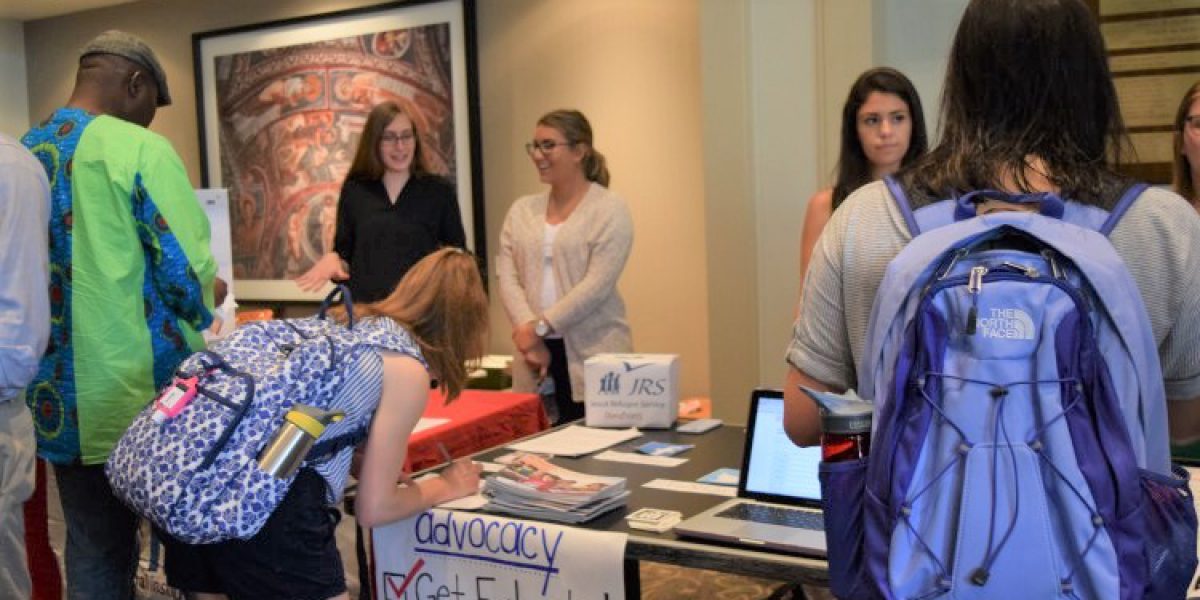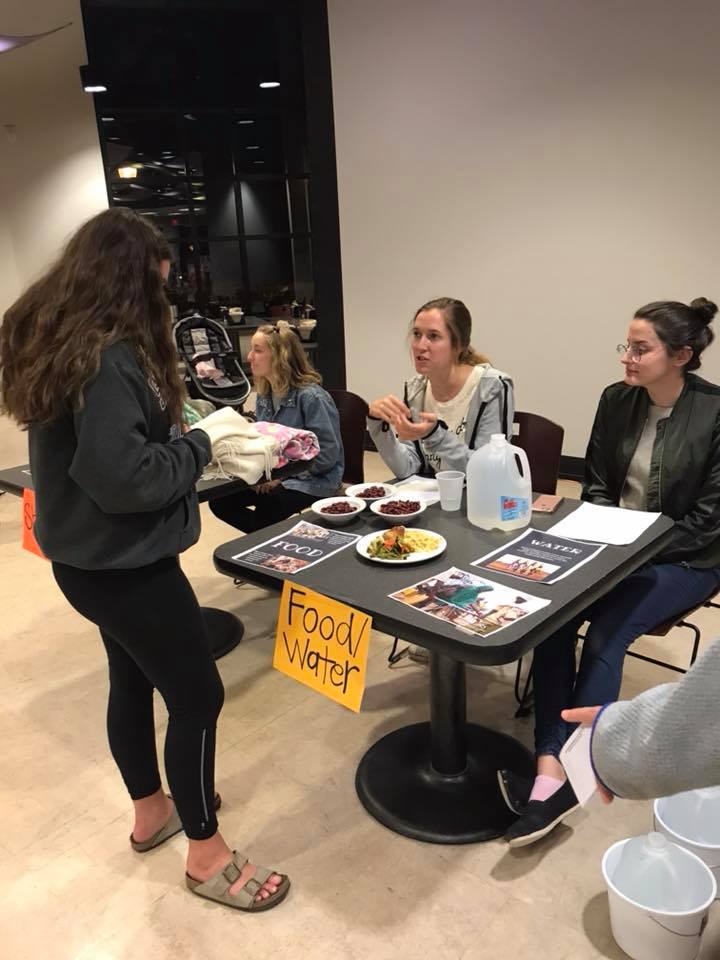USA: JRS Refugee Simulation Provides Eye-Opening Experience for Students
21 November 2017

Many high school and college students typically worry about exams, having a social life, and what their next steps are after school. However, in accordance with Pope Francis’ directive to welcome the poor and marginalized, students are coming together to learn about refugees and immigrants their age who have more serious issues, such as fearing for their lives, access to food and clean water, and major health problems.
While it is impossible to fully comprehend what it is like to be forced from your home and live as a refugee, students from schools around the country, including Loyola Academy, Misericordia University, Fairfield University, and Georgetown University are hosting JRS/USA’s “Walk a Mile in My Shoes” refugee simulations.
After receiving feedback and supplementary materials developed by groups who have hosted simulations in the past, JRS/USA recently released an updated Walk a Mile in My Shoes toolkit describing how to host a refugee simulation. A new section on Reflection Resources was added, along with updated statistics from UNHCR that reflect the current state of refugees globally. The refugee simulation provides students with an opportunity to pause and experience the frustrations, disappointments, and hopes that refugees around the world face.
This experience allows students to educate each other, develop an understanding for the impact they can make, all while fellow-shipping as one to make a difference. With student led stations, presenters reveal statistics and assign tough tasks to their peer attendees who assume the identity of a refugee. These tasks consist of carrying heavy buckets of water, squeezing into a 37-square-foot tent with others, eating small rations of beans and rice for a meal, and having little to no healthcare or education.
The peer-to-peer interaction gives students the opportunity to discuss the hardships they were enduring as they led the life of a refugee for a few short hours. Christine Somers, the Director of Campus Ministry at Misericordia University, stated that “This is really to raise awareness and educate the students on what refugees go through and how they live.”
Each student was somehow moved to take action at the final Advocacy Station, where donations were made, letters were written, and students signed-up to learn more. “My station goes over the three big things we want to accomplish,” said Viviana Micciche of Fairfield University. “Number one is getting educated, secondly, we want people to spread the word, and lastly, to take action. We want people to sign petitions that are going to help refugees, as well as making donations if that’s a possibility.”
Faculty and staff at participating schools hope their students can see the real crisis in the world through the simulation and learn how they can provide support to those in need.




